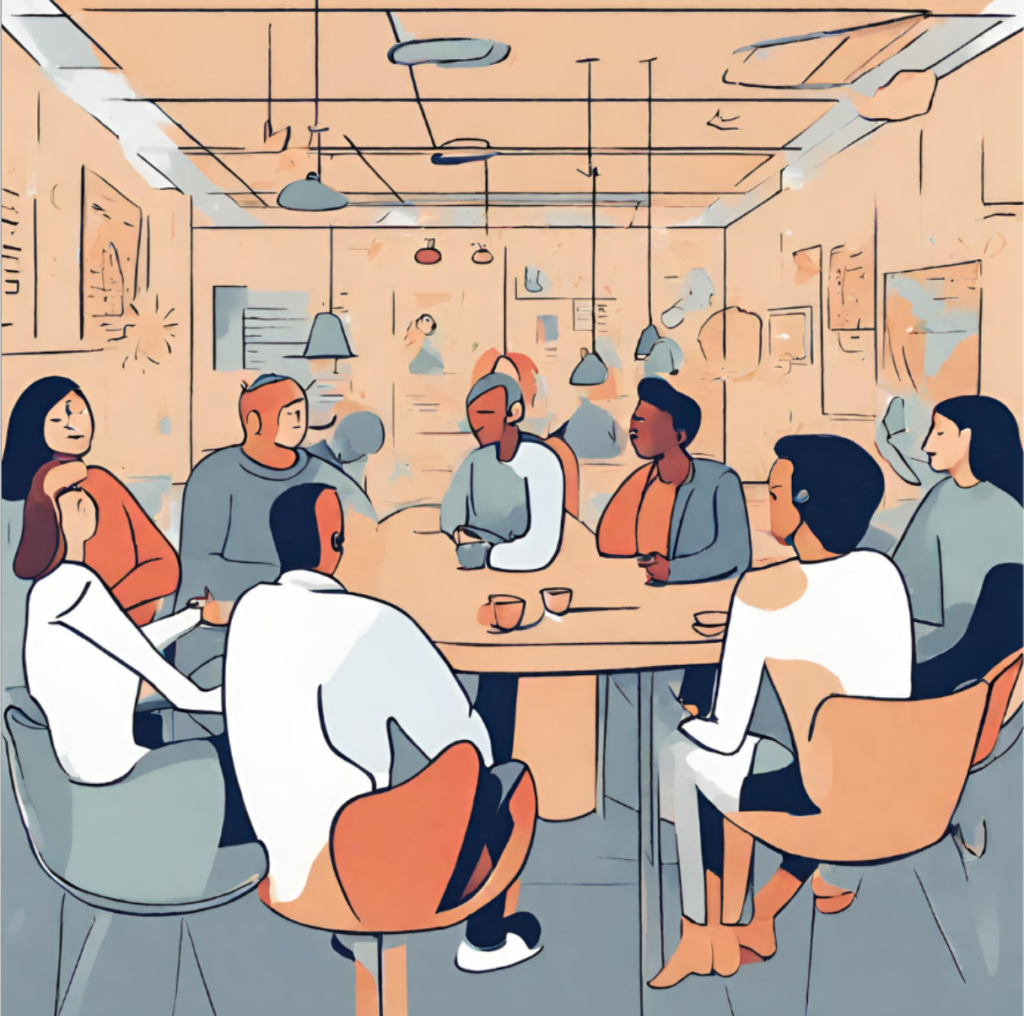In the era of disastrous climate change effects, innovative climate solutions are born every day globally. The idea behind Climate Cafés starts with one objective in mind: blending the cozy and welcoming atmosphere of cafés, places where the community gathers for discussion and talks on climate change topics. This grassroots movement aims to spur local dialogue on climate change within a community while creating a model that can simply be replicated around the world to spark environmental consciousness, climate education, action and ultimately, systemic change.
From talk to action
As Faith4Future magazine cites, ‘climate cafés can look like a big group that organises speakers and events, or it can look like a small village effort with homemade cakes to encourage clean transportation’. The Climate Café® initiative in fact, brings people together to get more conversations on climate change happening, it is completely community led and therefore usually rises from a town, an organisation, a church or a civic group.
‘The concept is very simple’ says a young representative of Climate Café® from Scotland in an interview at Change Now in Paris for Icarus Complex magazine, ‘people can come for a cup of coffee or tea or just have a drink. They can get a biscuit or a slice of cake while having a conversation on climate related topics’. As he explains, ‘these conversations often end up with big and concrete actions’.
One example is the Heat Projects, in north-eastern and highland Perthshire, Scotland, which has delivered direct energy saving devices to more than 3000 households with further savings in energy bills, and reduced energy debts while installing 140 renewable devices in homes. Not only that, it has also created three full time jobs. This happens, just after one chat from climate cafés. ‘That seems to me to be a really good example of how the Climate Café movement can work’ mentions Mark Ruskell, the Scottish Greens MSP for Mid Scotland and Fife.
Awareness and Education
Climate Café® spaces are relatively easy to organise: usually held within community spaces such as the theatre, cinemas, school campuses, libraries or wherever is easiest for the community. One of the main challenges encountered by organisers is to let people understand that the initiative is fully arranged by common people, and not by massive companies or big corporations which one might want to avoid.
On another level, people still think they have to be experts to talk about climate. In this case, it is important to recall the ultimate purpose of climate cafés, which is carrying along conversations in an intergenerational, inclusive, diverse, respectful and welcoming setting among individuals who share little more than residing in the same area, yet face similar problems and concerns, and that collectively seek feasible solutions to enhance their circumstances. In community settings, these venues serve as platforms for the exchange of viewpoints and perspectives from all participants.
The Climate Café® model has been an inspiration for different initiatives. For example, the NGOs Force of Nature, has used the dialogue space model of Climate Café® to bring life to more managed and directed sessions with an aim to counter the growing eco-anxiety among young people. In fact, contrary to the original Climate Café® model, their sessions require people to be trained to facilitate dialogues.
On the topic of climate anxiety and mental health, grassroots climate pioneers have also shared their views on the intrinsic value of spaces dedicated to connect, share thoughts and personal experiences on growing feelings of hopelessness regarding climate change and policy inaction.
Additionally, if we consider that 70% of young people are eco-anxious (Force of Nature, 2024) spaces such as Climate Cafés offer a valuable solution for facilitating discussions
regarding the emotional impact of the climate crisis and for collaboratively devising strategies within communities to translate these sentiments into actionable initiatives. During the pandemic the movement didn’t stop, setting up virtual hubs where people were still be able to connect.
At present, Climate Cafés are active in India, Africa, Nepal, and the USA turning this movement into a true advocate for local action with global effect.
Sipping Towards Sustainability
This self-organised kind of grassroots movement and international network of people exchanging about climate and community needs in local groups, peer groups, virtual groups, and just about anywhere a group of people want to get together to learn, grow, and make a difference is the perfect example of local action that can eventually lead to global results. The more people are willing to work together, the quicker small actions can grow into a global phenomenon (Earth.org, 2023). As the young representative from Climate Café® which started in Scotland stresses
We don’t work WITH the community, we ARE the community. We don’t work with them, we ARE them”, so to demonstrate that Climate Cafés are an echo chamber for individuals to gather, bring a problem to the table and invoke change through practical actions and political pressure.
Finally, in a world facing unprecedented environmental challenges, Climate Cafés offer a ray of hope, inspiration and positive thinking along with acting as a blueprint for grassroots action. By empowering each member of the community to do their part on climate, individuals have the opportunity to feel interconnected, contributing to a collective force capable of truly altering behaviours and influencing policy. By registering your own Climate Cafe® for instance, you can have the opportunity to create a safe space for your own community and have the chance to lead systemic change and spark action from within.
